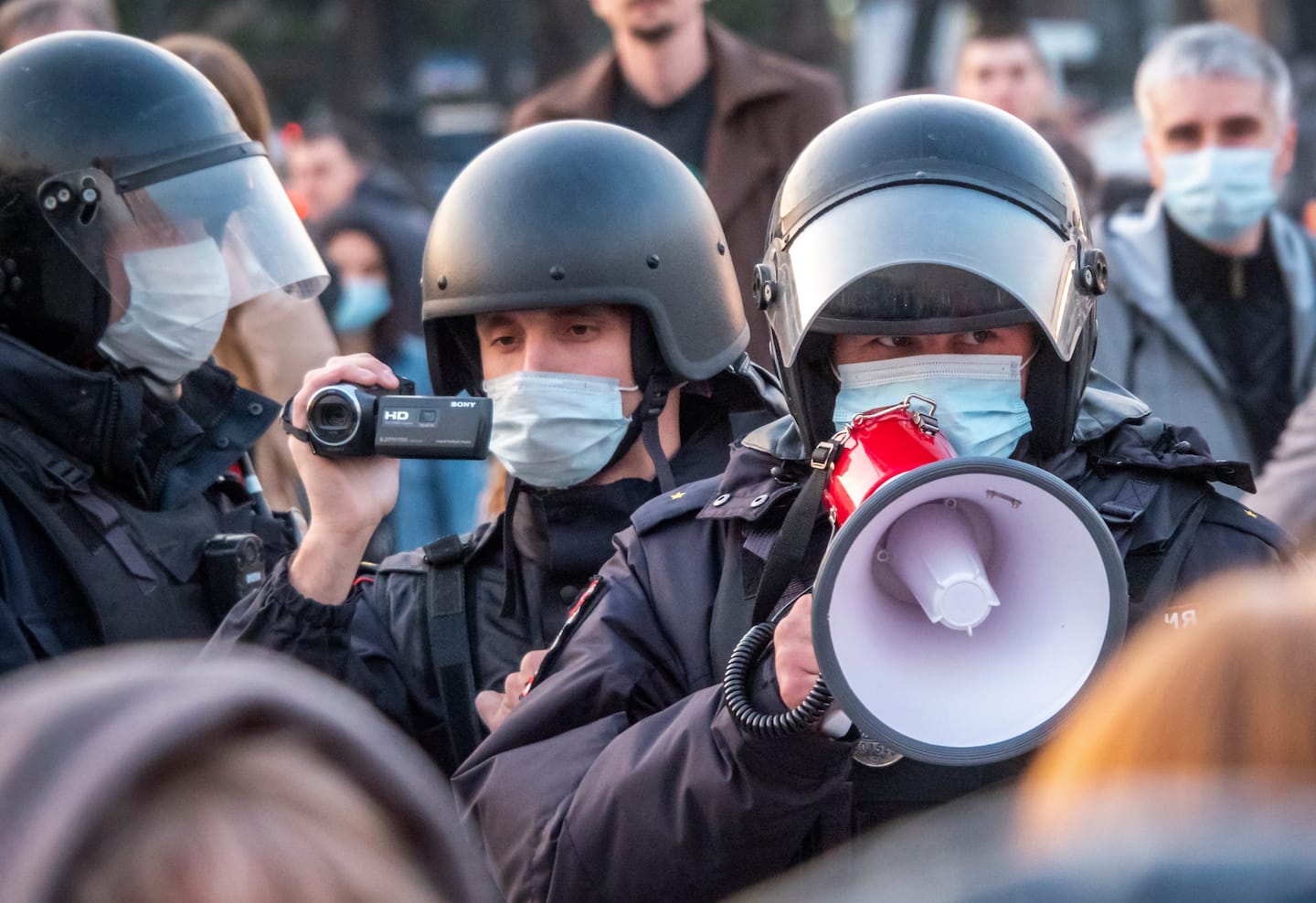Memorials aren’t enough. Here’s what the West can do right now to protect Alexei Navalny.

Navalny’s health is deteriorating by the hour. In recent weeks, he is reported to have been suffering from acute back pain, as well as loss of sensitivity in his legs and arms — almost certainly an effect of last year’s near-fatal poisoning perpetrated by the Russian secret police. A doctor who reviewed the results of blood tests conducted in prison has warned that he could die “at any moment.” The authorities are still preventing Navalny’s civilian doctors from seeing him and have instead transferred him to a prison hospital that former inmates compared to a concentration camp. Meanwhile, his guards have threatened to start force-feeding him — an excruciatingly painful practice used in Soviet times on dissidents including Andrei Sakharov and Vladimir Bukovsky.
This slow-motion torment echoes horrific episodes from the Soviet prison system, even in its more “liberal” post-Stalin version. In August 1986, Anatoly Marchenko, a writer, co-founder of the Moscow Helsinki Group and the Soviet Union’s most prominent prisoner of conscience, went on hunger strike to demand the release of political prisoners. The strike, interrupted by periods of force-feeding, lasted for 117 days. On Dec. 8, Marchenko died shortly after being transferred to a civilian hospital. A Russian foreign ministry spokesman said the cause of death was a “cerebral hemorrhage.”
Russian President Vladimir Putin has brought back many of the repressive practices of the Soviet era — a fact dramatized by the case of Sergei Magnitsky, a lawyer who uncovered a colossal tax fraud scheme involving state officials. In 2009, after he was arrested at the instigation of those same officials, he died in a Moscow prison after a scrupulously documented 358 days of torment.
Marchenko’s death caused an international outcry, ramping up pressure on the Kremlin and forcing the Soviet government, for the first time, to admit the existence of political prisoners — and later to begin releasing them. The plight of Magnitsky led to the passage of laws in Western countries — beginning with the United States in 2012 — that imposed targeted sanctions, in the form of visa bans and asset freezes, on Kremlin officials involved in human rights abuses.
As Russians are now rallying to save Navalny, leading world figures in science, art and culture (among them several Nobel laureates) are demanding that he be given access to medical care. Western officials, including senior representatives of the Biden administration, are warning the Kremlin — in somewhat macabre fashion — that there will be consequences if Navalny dies.
It should not be allowed to come to that. The Kremlin must be held accountable now, not after it succeeds in killing another political opponent. Rather than waiting to memorialize Navalny after the fact, the West must take steps to prevent his death. There is still time, but it’s running out fast.
The needed response is clear. Indeed, it was suggested by Navalny himself during a European Parliament hearing late last year. “The main question we should ask ourselves is why these people are poisoning, killing and fabricating elections,” he said. “And the answer is very, very simple: money. So [the] European Union should target the money and Russian oligarchs.”
It has been said that the biggest export from Putin’s regime to the West is not oil or gas but corruption. This statement is true — though it is always worth noting that corruption can be exported only if someone else is willing to import it. And there has been no shortage of Western governments, banks, real estate firms and financial institutions ready to welcome the loot Putin’s oligarchs are bringing to their countries.
Instead of entertaining misguided proposals to ban all Russian citizens from the European Union (which would end up targeting many of the same people who braved police batons and arrests at the protests this week), Western countries should announce that Russian oligarchs who oil the wheels of the Kremlin system will no longer be able to cross their borders or access their banks, effective immediately. Before his arrest in January, Navalny helped compile a list of business tycoons who should be prioritized for immediate sanctions. The names include close Putin associates such as Roman Abramovich, Alisher Usmanov, Oleg Deripaska, Gennady Timchenko and Igor Sechin. Astonishingly, most of them are still free to travel on both sides of the Atlantic.
Tacit Western support of Putin’s kleptocracy must stop. It is only for Russians to change the politics of our country — and the people on the streets this week are leading this growing movement for change. The very least Western democracies can do is to stop enabling a regime that speaks to its people in the language of violence, repression and murder.
Read more:






